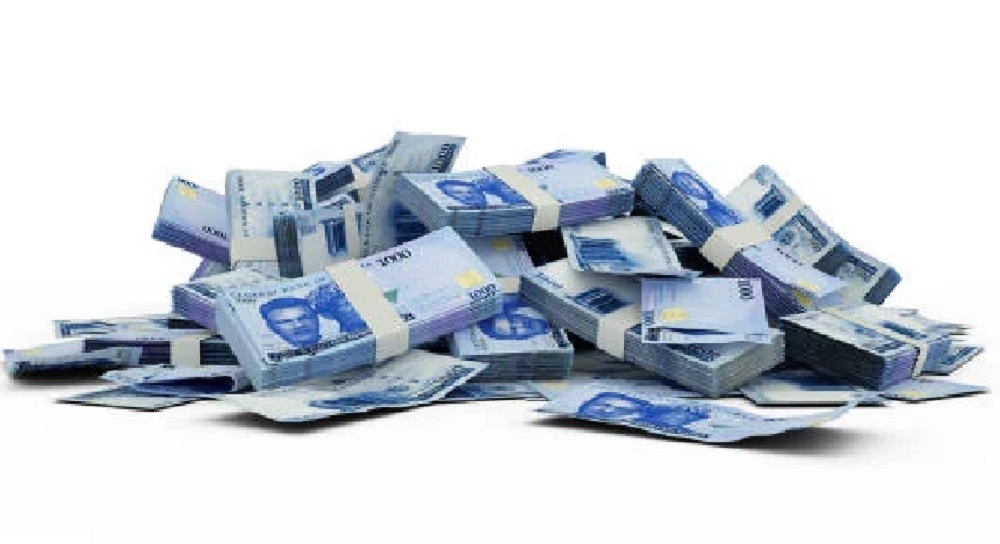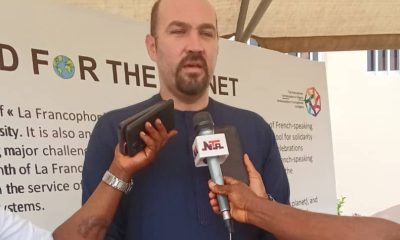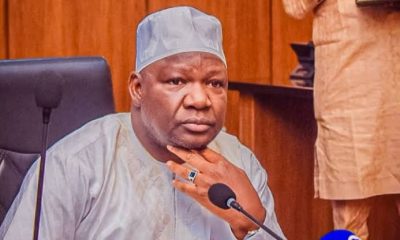Economy
SEC insists on January 31 deadline for CMO registration renewal

The Securities and Exchange Commission (SEC) has issued a reminder to Capital Market Operators (CMOs) to renew their registration for the 2025 operational year no later than January 31, 2025.
This directive was communicated through a circular urging CMOs to commence the annual renewal process from January 1, 2025.
In a statement, the SEC noted that the annual renewal of registration is designed to ensure that only fit and proper individuals or entities operate within Nigeria’s capital market.
The statement added that the exercise would be conducted electronically, with CMOs required to submit proof of their 2025 annual subscription payments to their respective trade groups as part of their renewal application.
The SEC stated: “This is to inform all Capital Market Operators (CMOs) and the general public that the annual renewal of Registration of CMOs for the year 2025 will commence from January 01, 2025. All CMOs applying for renewal are required to include their 2025 annual subscription receipt from their respective trade groups as part of their application.”
It further explained that all CMOs are required to complete their registration renewal through the SEC’s designated portal at www.eportal.sec.gov.ng on or before January 31, 2025.
The SEC warned that CMOs who fail to meet the deadline or secure valid registration would face penalties and could be barred from conducting capital market activities.
The Commission first reintroduced the requirement for annual registration renewal in 2021, citing the need for a reliable database of active and registered CMOs in the Nigerian capital market.
This measure aims to ensure that local and foreign investors, regulatory agencies, and the public can access accurate and up-to-date information on market operators.
The initiative also seeks to curb unethical practices that could undermine investor confidence and harm the capital market’s reputation.
Additionally, it enhances the SEC’s ability to supervise and monitor CMOs effectively.
To facilitate the renewal process and improve efficiency, the Commission amended its rules, mandating that the registration renewal process be conducted electronically.
Economy
States face allocation cuts as agency demands N100bn monthly

The monthly statutory allocations to state governments from the federation account may decline in the coming months following an official request by the Nigeria Sovereign Investment Authority to boost the nation’s residual funds with the support of N100bn monthly.
The request, which was presented by the Managing Director and Chief Executive Officer of NSIA, Aminu Umar-Sadiq, is aimed at unlocking large-scale investments to drive Nigeria’s economic growth.
He made the request at the March revenue-sharing meeting of the Federation Account Allocation Committee held between April 14 and 15, 2025. Our correspondent obtained a copy of his presentation during the meeting on Friday.
Umar-Sadiq appealed to the committee, which includes state commissioners of finance, to consider and approve the request, with funding proposed to commence from the March FAAC allocation.
The presentation was titled, “Activating Residual Funding for the Nigeria Sovereign Investment Authority – Unlocking Opportunities for Large-Scale Investments to Drive Nigeria’s Economic Growth.”
According to the document, the NSIA is requesting a structured monthly disbursement of N100bn from Residual Funds—revenues in the Federation Account beyond projected hydrocarbon income—to establish a Naira-based investible capital pool.
The move, the authority says, will enhance its capacity to finance critical domestic infrastructure projects.
The MD said, “The funding would position the authority as a leading sovereign wealth fund globally, promoting responsible and strategic investments for Nigeria’s economic development and enhancing its threefold mandate to build a savings base for the country, enhance the development of infrastructure, and provide stabilisation support.”
He explained that residual funds are a legitimate source of funds transferred to the authority, provided that the derivation portion of the revenue allocation formula shall not be included as part of this funding.
Economy
More Nigerians to experience poverty by 2027 – World Bank

The World Bank’s latest Africa’s Pulse report has projects a grim future for Nigeria, with poverty expected to rise by 3.6 percentage points by 2027.
Released during the IMF and World Bank Spring Meetings in Washington, DC, the report cites Nigeria’s reliance on oil, economic fragility, and governance challenges as key drivers.
It highlights the country’s structural economic weaknesses, dependence on oil revenues, and national fragility as key barriers to meaningful poverty reduction.
“Poverty in resource-rich, fragile countries, including large economies like Nigeria and the Democratic Republic of Congo, is projected to increase by 3.6 percentage points between 2022 and 2027,” the report stated.
Despite recent growth in Nigeria’s non-oil sector during the last quarter of 2024, the World Bank warns that this progress is unlikely to translate into widespread poverty alleviation due to ongoing fiscal and institutional challenges.
The report emphasizes that Sub-Saharan Africa remains the world’s poorest region, with an overwhelming 80% of the globe’s 695 million extreme poor residing there in 2024.
Within the region, half of the 560 million extremely poor people were located in just four countries, including Nigeria.
In stark contrast, South Asia accounted for 8% of the world’s extremely poor population, East Asia and the Pacific 2%, the Middle East and North Africa 5%, and Latin America and the Caribbean 3%.
The World Bank attributes the rising poverty in Nigeria and similar economies to weakening oil prices and fragile governance structures, noting: “This follows a well-established pattern whereby resource wealth combined with fragility or conflict is associated with the highest poverty rates, averaging 46% in 2024, which is 13 percentage points higher than in non-fragile, resource-rich countries.”
Meanwhile, non-resource-rich countries in Africa are experiencing stronger economic growth and faster poverty reduction, buoyed by high agricultural commodity prices and more resilient fiscal policies.
To reverse Nigeria’s downward poverty trend, the World Bank recommends reforms that prioritize inclusive economic growth and stronger public financial management.
It calls on the government to focus on “improving fiscal management and building a stronger fiscal contract with citizens to promote inclusive economic development and long-term poverty alleviation.”
Economy
SEE current exchange rate of the Dollar to Naira

What Is the Dollar to Naira Exchange Rate at the Black Market (Aboki FX)?
Here is the Dollar to Naira exchange rate at the parallel market, popularly known as the black market (Aboki fx), for Tuesday, April 23, 2025.
You can exchange your dollars for naira at the following rates:
Black Market Exchange Rate (Lagos – April 23, 2025):
According to sources at the Bureau De Change (BDC), the exchange rate at the Lagos parallel market saw traders buying at ₦1610 and selling at ₦1620 per US dollar.
It’s important to note that the Central Bank of Nigeria (CBN) does not recognize the black market. The CBN advises individuals seeking foreign exchange transactions to do so through their banks.
Dollar to Naira Exchange Rates
Market Type Buying Rate Selling Rate
Black Market ₦1610 ₦1620
CBN Official Rate ₦1591 (Low) ₦1606 (High)
Note: Forex rates vary across dealers and regions, and actual rates may differ from those listed.
Meanwhile, the Nigeria Customs Service (NCS) has announced the seizure of 298 smuggled items worth ₦7.6 billion between January and March 2025. The NCS also disclosed that it generated a total revenue of ₦1.75 trillion in the first quarter of the year.
-

 News8 hours ago
News8 hours agoJust in: Senator Natasha tenders satirical ‘apology’ to Akpabio
-

 News23 hours ago
News23 hours agoGunmen abduct two senior LG workers, three others
-

 News4 hours ago
News4 hours agoUNUSUAL! Without invitation, Police declared me wanted — Daughter of ABC Transport owner
-

 News17 hours ago
News17 hours agoBenue LG chairman gives Fulanis 48hrs to leave all farmlands
-

 News22 hours ago
News22 hours agoFrancophone Ambassadors, Nigeria Unite To Fight Against Climate Change
-

 News17 hours ago
News17 hours agoFive suspected kidnappers eliminated by police in Delta
-

 Metro10 hours ago
Metro10 hours ago‘My husband always makes love throughout the night until morning’ – Woman Wants Divorce
-

 News58 minutes ago
News58 minutes agoWeeks to 2nd anniversary, Niger deputy gov, plans to resign, move out personal effects
















